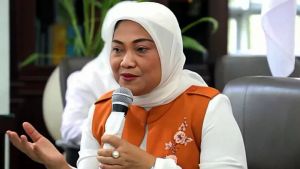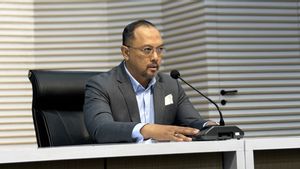JAKARTA - The Ministry of Health (Kemenkes) mentioned the importance of building multi-party risk communication to prevent infectious diseases, including in community groups.
Director General of Disease Prevention and Control (Dirjen P2P) of the Ministry of Health Maxi Rein Rondonuwu said efforts to invite or persuade to prevent not only COVID-19 but other infectious diseases.
"There needs to be good risk communication to persuade people who don't want vaccines, don't want to take drugs. For that it is important how we build risk communication, not only for COVID-19, but also other infectious diseases that still threaten us such as tuberculosis and HIV", he said in an event in Jakarta, Monday, June 26, quoted by Antara.
Maxi emphasized that it is also important to build public trust by strengthening risk communication through health workers (nakes) in primary health services, namely the puskesmas. "It is also important to build public trust in order to be vaccinated and seek treatment in order to achieve the transformation of primary health services, including health centers," he said. In addition, he also emphasized the importance of delivering inclusive risk communication in order to improve vaccination services that reach vulnerable groups.
"We can as long as we work together and cooperate. The initiative that seeks inclusive services is very good, because there are many obstacles that we encounter in the regions, for example health workers who are unable to reach a distance of 50 km from the puskesmas to the residents' housing," he said.
另请阅读:
According to him, Community Empowerment Risk Communication (KRPM) is very important for education and socialization so that people want to get vaccines or want to come for treatment to the puskesmas if they are infected. One of the representatives of health volunteers from the Central Java Elderly Care Community, Aron Aan Damara, said the importance of building risk communication in the regions is because people must be approached continuously, not just once. "I visited elderly women in their 70s, when I first came he didn't want to be vaccinated, then when I came the second time, I changed the communication, I said I would later carry it, I hugged him, finally he wanted," said Aron. For this reason, Maxi stated that an example of successful communication risk, especially in the regions, could be a lesson and applied to prevent transmission of other diseases, as well as to prepare the community in the face of a pandemic in the future.
The English, Chinese, Japanese, Arabic, and French versions are automatically generated by the AI. So there may still be inaccuracies in translating, please always see Indonesian as our main language. (system supported by DigitalSiber.id)
















